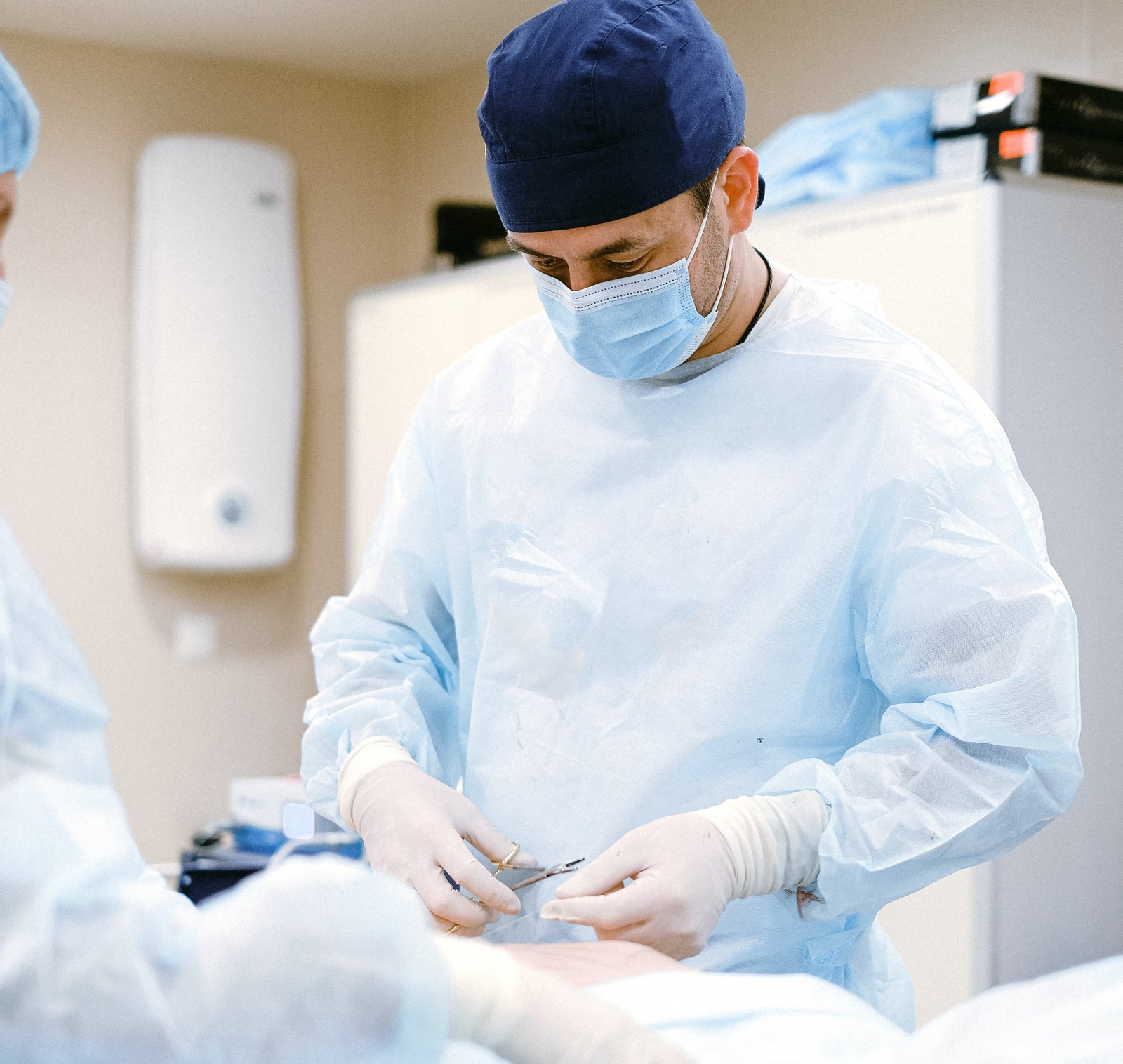
Are you tired of living with persistent shoulder pain that won’t go away? If so, it’s time to consider the benefits of laser surgery for shoulder. Laser surgery is a minimally invasive procedure that utilizes advanced laser technology to target and treat the underlying causes of shoulder pain. Laser surgery offers numerous advantages, unlike traditional open surgeries, including smaller incisions, reduced scarring, and faster recovery times. Additionally, laser surgery provides precise and targeted treatment, allowing for more effective pain relief and improved mobility.
Whether you’re suffering from a rotator cuff tear, a frozen shoulder, or any other shoulder condition, laser surgery can provide a safe and efficient solution to alleviate your pain and restore your quality of life. This article will explore the various benefits of laser surgery for shoulder pain relief, helping you decide about your treatment options. Say goodbye to shoulder pain and hello to a pain-free, active lifestyle with laser surgery.
How Laser Surgery For Shoulder Works for Pain Relief
Laser surgery is a revolutionary technique that has transformed the field of shoulder pain treatment. The procedure involves using a laser beam to precisely target and remove damaged tissue or repair injured structures in the shoulder joint. The laser beam emits a high-intensity light focused on the affected area, allowing the surgeon to precisely remove or reshape tissue without causing damage to surrounding healthy tissue.
One of the key benefits of laser surgery is its ability to provide targeted treatment. The surgeon can adjust the intensity and wavelength of the laser beam to target the source of your shoulder pain specifically. This precision allows for a more effective treatment, as the laser can reach areas that may be difficult to access using traditional surgical methods. Additionally, laser surgery minimizes the risk of collateral damage to healthy tissue, reducing the chances of complications and promoting faster healing.
Laser surgery for shoulder pain relief is typically performed outpatient, meaning you can go home the same day as the procedure. The surgery is performed under local or regional anesthesia, reducing the risk associated with general anesthesia. The surgeon will make a small incision in the shoulder, through which specialized laser instruments are inserted. The laser is then used to treat the affected area, whether removing scar tissue, repairing a torn tendon, or addressing other shoulder conditions. Once the procedure is complete, the incision is closed with sutures or adhesive strips, and a bandage is applied.
Laser surgery is a safe and effective option for shoulder pain relief, with a high success rate and minimal risk of complications. The procedure has been proven to provide long-lasting pain relief and improved shoulder function, allowing patients to regain their freedom of movement and enjoy an active lifestyle.
Advantages of Laser Surgery Over Traditional Surgical Methods
Laser surgery offers several advantages over traditional open surgeries when treating shoulder pain. One of the most significant benefits is the smaller incisions required for laser surgery. Unlike open surgeries that often involve large incisions, laser surgery only requires small, precise incisions. These smaller incisions result in less tissue trauma, reduced bleeding, and a lower risk of infection. Additionally, smaller incisions mean less scarring, which can be a major concern for many patients.
Another advantage of laser surgery is the faster recovery time compared to traditional surgical methods. The minimally invasive nature of laser surgery allows for quicker healing and a shorter hospital stay. Most patients can return to normal activities within a few weeks, compared to the months-long recovery time associated with open surgeries. This faster recovery time reduces the physical burden on patients and minimizes the disruption to their daily lives.
In addition to the smaller incisions and faster recovery time, laser surgery offers improved precision and accuracy. The surgeon can precisely target the affected area using the laser beam, ensuring that only the damaged tissue is treated while leaving healthy tissue intact. This precision leads to better outcomes and reduces the risk of complications and post-operative pain.
Overall, laser surgery provides a more patient-friendly approach to shoulder pain relief. The combination of smaller incisions, faster recovery times, and improved precision makes laser surgery an attractive option for those seeking effective and efficient treatment for their shoulder pain.
Recovery Process After Laser Surgery For Shoulder
After laser shoulder surgery, following your surgeon’s post-operative instructions is important to ensure a smooth and successful recovery. While the recovery process may vary depending on the specific procedure performed and individual factors, there are some general guidelines to remember.
Immediately following the surgery, you may experience some pain and discomfort. Your surgeon will prescribe pain medication to help manage any post-operative pain. It’s important to take the medication as directed and report any severe or worsening pain to your surgeon.
You will likely be advised to apply ice packs to your shoulder for the first few days after surgery to promote healing and reduce swelling. It’s important to follow the recommended schedule for icing and avoid applying ice directly to the skin to prevent frostbite.
You will also be given specific instructions regarding wound care. Keeping the incision site clean and dry is important to prevent infection. Your surgeon may recommend using a sterile dressing or bandage and will guide when and how to change it.
Physical therapy is essential to the recovery process after laser shoulder surgery. Your surgeon may recommend working with a physical therapist to help restore strength and mobility to your shoulder. Physical therapy exercises typically focus on gradually increasing the range of motion, strengthening the shoulder muscles, and improving flexibility. Attending all scheduled physical therapy sessions and diligently performing the recommended exercises at home is important to optimize your recovery.
During recovery, avoiding activities that may strain or injure your shoulder is important. Your surgeon will provide specific guidelines on when you can resume certain activities, such as driving or lifting weights. Following these guidelines is essential to prevent complications and ensure a successful outcome.
In most cases, patients can expect significant improvement in their shoulder pain and function within a few weeks to a few months after laser shoulder surgery. However, it’s important to note that individual recovery times may vary, and it’s crucial to be patient and allow your body the time it needs to heal fully.
Common Shoulder Conditions Treated with Laser Surgery
Laser surgery is a versatile treatment option that can address various shoulder conditions. Whether you’re suffering from a specific injury or a chronic condition, laser surgery may provide the relief you’ve been searching for. Some common shoulder conditions treated with laser surgery include:
1. Rotator cuff tears: The rotator cuff is a group of muscles and tendons that surround the shoulder joint. Tears in the rotator cuff can cause pain, weakness, and limited range of motion. Laser surgery can repair the torn tendon, relieving pain and restoring shoulder function.
2. Frozen shoulder: Also known as adhesive capsulitis, frozen shoulder is characterized by stiffness and pain in the shoulder joint. Laser surgery can help break up scar tissue and improve shoulder mobility in patients with frozen shoulders.
3. Shoulder impingement syndrome: This condition occurs when the tendons of the rotator cuff become pinched or irritated, leading to pain and inflammation. Laser surgery can be used to remove the impinging structures and alleviate symptoms.
4. Bursitis: Bursitis is the inflammation of the bursa, a fluid-filled sac that cushions the shoulder joint. Laser surgery can help reduce inflammation and relieve pain in patients with bursitis.
5. Labral tears: The labrum is a cartilage ring that surrounds the shoulder socket and helps stabilize the joint. Tears in the labrum can cause pain, instability, and limited range of motion. Laser surgery can repair the torn labrum and restore shoulder stability.
Laser surgery can effectively treat these are just a few examples of shoulder conditions. However, consulting a qualified surgeon is important to determine your condition’s most suitable treatment approach.
Risks and Potential Complications of Laser Surgery for Shoulder Pain Relief
While laser surgery for shoulder pain relief is generally considered safe, like any medical procedure, it carries some risks and potential complications. It’s important to be aware of these risks and discuss them with your surgeon before deciding on your treatment.
One of the potential risks of laser surgery is infection. Although the risk of infection is relatively low, it’s important to follow your surgeon’s post-operative instructions regarding wound care and hygiene to minimize this risk. Signs of infection include increased pain, redness, swelling, or discharge from the incision site. If you experience any of these symptoms, it’s important to contact your surgeon immediately.
Another potential complication of laser surgery is bleeding. While laser surgery typically involves minimal bleeding, informing your surgeon of any bleeding disorders or medications that may increase the risk of bleeding is essential. Your surgeon will take appropriate measures to minimize bleeding during the procedure.
Nerve damage is another potential risk associated with laser surgery. While rare, nerve damage can occur during the surgery, leading to weakness, numbness, or tingling in the shoulder or arm. It is important to discuss this risk with your surgeon and ensure they have the expertise and experience to perform the surgery safely.
In some cases, laser surgery may not provide the desired outcome, and additional treatment may be required. It’s important to have realistic expectations and understand that while laser surgery can provide significant pain relief and improved shoulder function, it may not completely eliminate all symptoms.
Before undergoing laser surgery, choosing a qualified and experienced surgeon specializing in shoulder surgery is crucial. Take the time to research their credentials, read patient reviews, and ask for recommendations from your primary care physician or friends and family members who have undergone similar procedures. A skilled surgeon will minimize the risks and complications associated with laser surgery and increase the likelihood of a successful outcome.
Choosing a Qualified Surgeon for Laser Surgery For Shoulder
Choosing a qualified surgeon is one of the most important decisions when considering laser shoulder surgery. Your surgeon’s expertise and experience can significantly impact your procedure’s success and your overall satisfaction with the results. Here are some factors to consider when selecting a surgeon for laser shoulder surgery:
1. Board certification: Ensure the surgeon is board-certified in orthopedic surgery or a related specialty. Board certification indicates that the surgeon has undergone rigorous training and met high knowledge and skill standards.
2. Experience: Inquire about the surgeon’s experience with laser shoulder surgery. Ask how many procedures they have performed and what their success rates are. A surgeon with extensive experience in laser shoulder surgery is more likely to deliver optimal results.
3. Specialization: Look for a surgeon who specializes in shoulder surgery. Shoulder anatomy and conditions are complex, and a specialist will have a deep understanding of the intricacies of the shoulder joint and the most effective treatment approaches.
4. Patient testimonials: Read patient testimonials and reviews to understand the surgeon’s reputation and patient satisfaction. Positive reviews and success stories can provide reassurance and confidence in your choice of surgeon.
5. Communication: Consult the surgeon to discuss your condition, treatment options, and expectations. Pay attention to their communication style, willingness to answer questions, and ability to explain clearly. A good surgeon will take the time to listen to your concerns and ensure you thoroughly understand the procedure.
6. Hospital affiliation: Inquire about the surgeon’s hospital affiliations. A surgeon affiliated with a reputable hospital or surgical center is more likely to have access to state-of-the-art facilities and resources, which can contribute to successful surgery.
Remember, it’s important to feel comfortable and confident in your choice of surgeon. Take the time to research and compare multiple surgeons before making a decision. Your shoulder health and overall well-being are worth the effort to find the best surgeon for your needs.
Patient Testimonials and Success Stories of Laser Surgery For Shoulder
Real-life experiences and success stories can provide valuable insight into the effectiveness and benefits of laser shoulder surgery. Here are a few patient testimonials highlighting the positive outcomes of laser shoulder surgery:
1. “I had been suffering from a rotator cuff tear for years and had tried various conservative treatments without success. Laser shoulder surgery was a game-changer for me. The procedure was quick and relatively painless, and the recovery was much faster than expected. I am pain-free and have regained a full range of motion in my shoulder. I can’t thank my surgeon enough for giving me my life back.”
2. “I was diagnosed with a frozen shoulder and struggled with severe pain and limited mobility. Traditional treatments didn’t provide much relief, so my doctor recommended laser shoulder surgery. The procedure was a breeze, and the results were incredible. My shoulder mobility improved significantly within a few weeks, and the pain was almost completely gone. I’m back to enjoying my favorite activities without any limitations.”
3. “I had been living with chronic bursitis in my shoulder for years. The constant pain and inflammation made it difficult to perform even simple daily tasks. Laser shoulder surgery was a game-changer for me. The surgery was minimally invasive, and the recovery was surprisingly quick. I am pain-free and can finally enjoy a good night’s sleep without shoulder discomfort. I highly recommend laser surgery for anyone suffering from shoulder pain.”
These testimonials are just a glimpse into the positive impact laser shoulder surgery can have on patients’ lives. However, it’s important to remember that individual results may vary. Consult your surgeon to determine if laser shoulder surgery is right for you based on your specific condition and medical history.
Frequently Asked Questions
How does laser surgery for the shoulder work?
During laser surgery, the surgeon makes small incisions to insert a thin tube with a laser at the end into the shoulder joint. The laser is then used to perform necessary repairs or remove damaged tissue, with the aid of real-time imaging.
What are the benefits of laser surgery for the shoulder?
Laser surgery often results in less pain, less scarring, reduced risk of infection, shorter hospital stays, and quicker recovery times compared to traditional open surgery.
Who is a candidate for laser surgery for the shoulder?
Candidates for laser surgery typically have shoulder conditions that have not responded to non-surgical treatments, such as physical therapy or medications. However, not all conditions are suitable for laser surgery, so a comprehensive evaluation by your doctor is necessary.
What are the risks associated with laser shoulder surgery?
As with any surgery, risks include infection, bleeding, and possible damage to surrounding nerves or tissues. There may also be risks associated with the use of the laser, such as accidental burns, though these are rare.
Is laser surgery for the shoulder painful?
Laser surgery is usually less painful than traditional surgery because it involves smaller incisions and less damage to surrounding tissues. Any post-surgical pain can usually be managed effectively with medications.
Can I return to sports after laser shoulder surgery?
Many patients are able to return to sports or physical activities after recovery. However, it's essential to follow your doctor's advice and not rush the healing process to avoid reinjury.
Conclusion
When deciding on treatment for shoulder pain relief, it’s crucial to understand the costs of laser surgery. The total cost of laser shoulder surgery can vary depending on factors such as the surgeon’s fees, the location of the facility, and any additional tests or procedures required. It’s important to obtain a detailed cost estimate from your surgeon or their office before proceeding with the surgery. Generally, laser surgery may be more expensive than traditional open surgeries because of the advanced technology and specialized equipment involved.
However, it’s important to consider the long-term benefits and potential cost savings associated with laser surgery. The faster recovery time, reduced risk of complications, and improved outcomes may offset the initial higher cost. It’s also important to note that insurance coverage for laser shoulder surgery can vary. Some insurance plans may cover a portion or all of the cost, while others may consider it an elective or cosmetic procedure and provide limited coverage or none at all. To understand your coverage and any out-of-pocket expenses you may have, contact your insurance provider.



